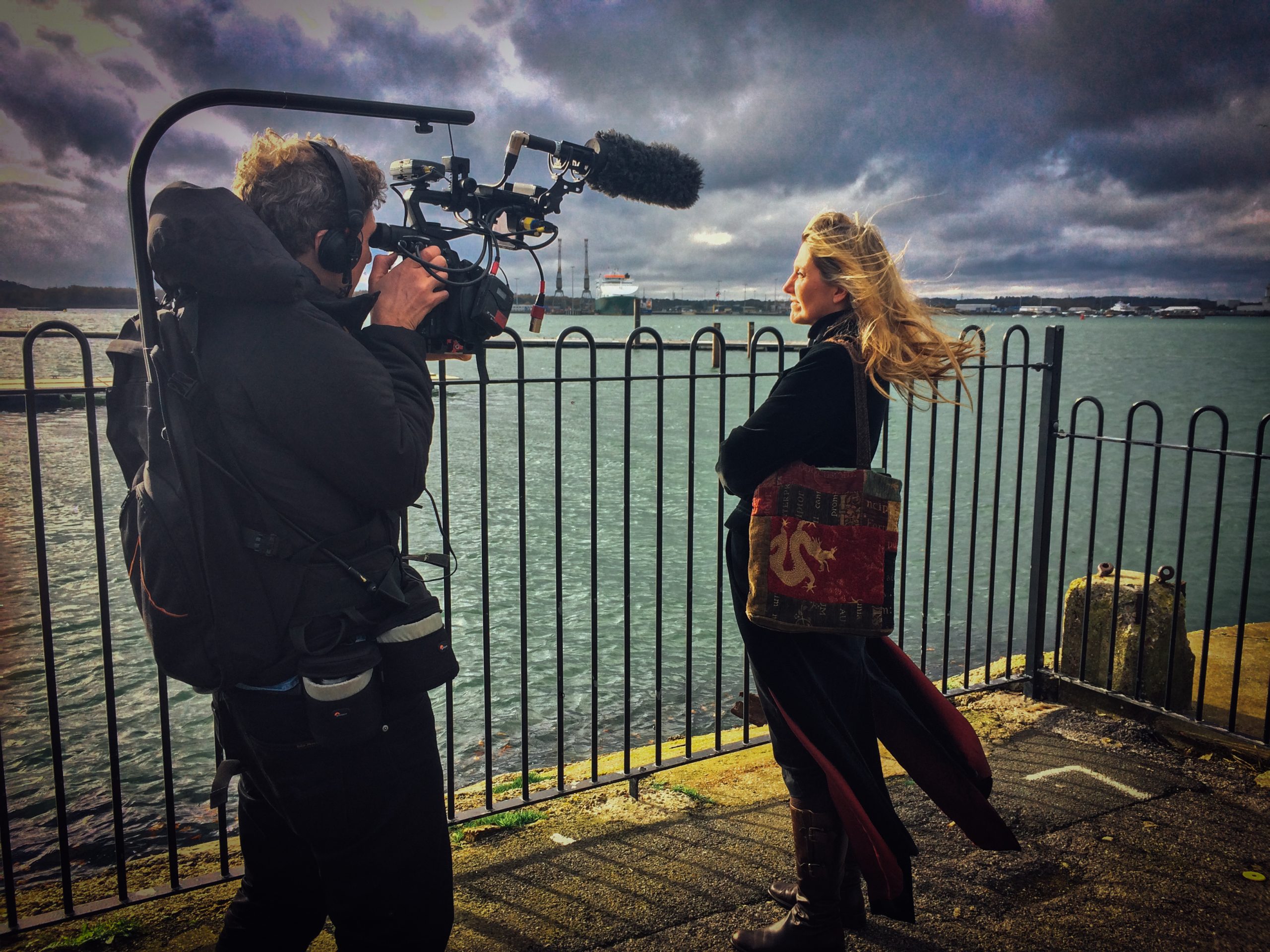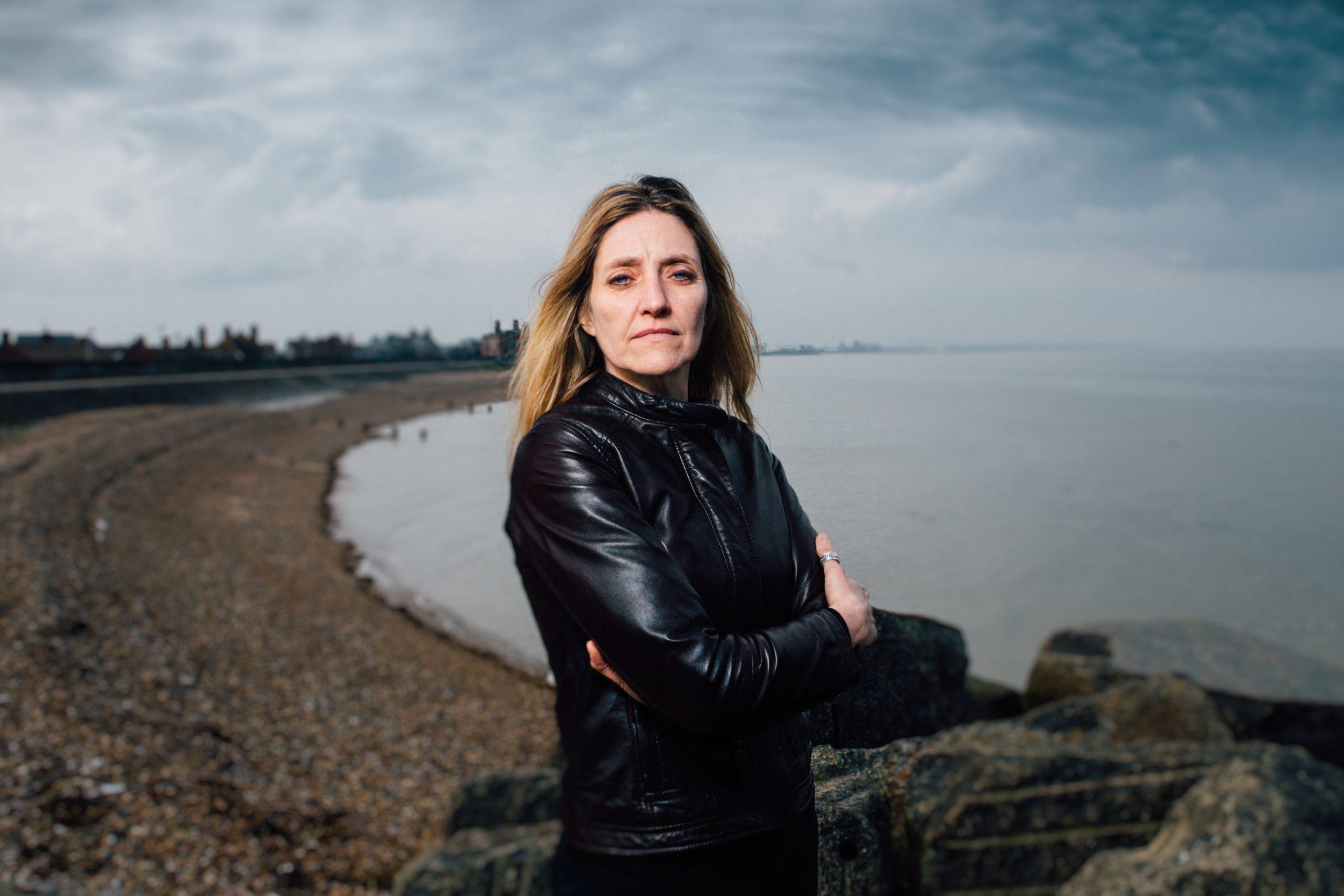Proof magazine: The other side of the camera

‘The media is a fickle beast’: Louise Shorter. Pics from BBC 2’s Convicition: Murder at the Station
After the success of Making a Murderer, production companies are falling over themselves for a slice of real crime action. Can they deliver? Louise Shorter isn’t convinced
Four years ago I sat in my kitchen with two rural beat officers who’d come to check if I was fit to visit a Category A prisoner. As they munched through a packet of Hobnobs, drinking my tea, I found it difficult to decipher exactly what the Ministry of Justice, who’d ordered the visit, thought this encounter might reveal.
They didn’t ask anything obviously probing or inspect anywhere beyond the kitchen and the loo but at the end of it all I was allowed to start applying for visits to the high security inmate I’d been refused access to for two years, so I must have passed muster somehow.
I imagine the official ‘security’ reason for coming to my home was satisfied pretty quickly. I could prove who I said I was and that I was a permanent resident at my home which was, handily enough, neither crack-house nor den of iniquity. But those facts had been established in the first five minutes and yet the officers seemed reluctant to climb back into their panda car, preferring to chat about the range of cases I work on at Inside Justice and before that on the BBC TV series Rough Justice.
Their curiosity is mirrored throughout society following the global success of real crime shows Serial and Making a Murderer: gold for the production companies behind them. So is that a good thing? Or should you follow the advice of a pinstriped, braces-stretching barrister I recently encountered: ‘Journalist? I always avoid them at every cost!”
The Cat A prisoner I wanted to visit was Colin Norris who had been working the nightshift as a nurse in a Leeds hospital when he discovered an elderly patient on his ward in a coma, apparently from an unexplained overdose of insulin. I met Colin’s mum and learned her son had not long been out of nursing college when the death occurred and the police were called in.
Led by an officer fresh from a review of the horrors of murderous GP Harold Shipman, the investigation worked on the theory that, if this was murder, it probably wasn’t the first and so trawled retrospectively through the wards where Colin had worked. Three families were told the loved ones they’d long since buried with explanations of old age and natural causes had, in fact, been murdered. Another family was told Colin had tried to murder their relative but failed. All the same MO – murder by insulin, though there was no absolute proof of that. At trial, at the end of a week of gridlocked deliberations, the jury scraped past the threshold with a majority verdict to convict. He’s serving a minimum of 30 years and has vehemently protested his innocence from the start.
I took Colin’s case back to my former colleague Mark Daly, now at BBC Glasgow Investigations. Mark and his boss Marcus Ryder were ahead of the curve, and the programme was commissioned even though a miscarriage of justice story was sniffed at then by many in TV-land as being ‘too 1980s’.
In the film we learned there was new international medical research carried out by unconnected doctors which shows the jury in Colin’s case was given what we now know to be misleading information about whether the deaths could be from natural causes.
In 2014 Mark and I made another film about Colin’s case, this time for national BBC TV strand Panorama. We added an interview with the jury foreman who said he’d have delivered a not guilty verdict if all the new information had been before him at trial. After broadcast, two more jurors came forward, one of whom also agreed to go public with his concerns about the safety of the conviction. I too strongly believe Colin Norris is entirely innocent of all charges. I still visit Colin today. He is a funny, kind, warm human being.
 Multitude of pain
Multitude of pain
And then came Serial and Making a Murderer and now every TV company in the land wants a slice of the real crime action. At one stage, at Inside Justice, we were getting a call a week from a different production company wanting to create their own version. And the ideas inevitably got more outlandish as development teams tried to find a unique angle. My personal favourite was the researcher who said their show would have a weekly live studio-based element where the audience would decide which witness should be tracked down and door-stepped next. I can see Mr Pinstripe’s Wallace & Gromit-esque grimace in my mind’s eye.
I know from talking to Colin Norris the films we made about his case gave him real hope. We were able to air issues that speak volumes to the public but may not cut it in the rigid rules of admissibility at the Court of Appeal. Throughout history the media has played a vital role in shining a light, leading the way for the criminal justice system to follow, but media execs’ faces still drain knowing the multitude of pain that comes with programme-making like this: victim issues, legal issues, missing or destroyed evidence. As a giant of the TV and marketing world said to me recently: ‘The problem is, these films can be a real ball-ache to make.’ He’s not wrong. But the rewards can be enormous if the media listen and let the world listen; it may change not only the life of the man or woman inside, but the lives of those who helped get the story out there too.
The last film I made for the BBC Rough Justice series, again along with reporter Mark Daly, was about the wrongful conviction of a skinny white kid called Barri White, who was serving a life sentence for the murder of his girlfriend, and Barri’s friend Keith Hyatt, convicted of helping to dispose of the body. In 2002 our research began and we aired our film, arguing their innocence, three years later. In 2008 The Court of Appeal quashed the convictions. Then the case landed on the desk of Tracy Alexander, a member of the Inside Justice advisory panel. She was heading up a team of scientists who were being asked to look for new evidence. That work led to the real killer being identified and convicted in 2013. None of that would have followed if the BBC hadn’t taken an interest when the wrong men were convicted.
Short term-ism
My chief concern is this resurgence of the genre will be over before you can say orange is the new black. Media is a fickle beast, fixated on short-term production schedules, producing big stories and big viewing figures. Investment must be made by production companies if they really want a global hit. The criminal justice wheels turn ponderously slowly. Making a Murderer was researched and filmed over 10 years. And at the end of the series there were no real answers about whether Stephen Avery had committed the murder he’s still incarcerated for.
But the series was literally awesome, in an Oxford dictionary definition kind of way, because the box-set generation allowed the story to breathe and explore, properly, the issues we see in so many miscarriage of justice cases: tunnel-vision police investigations, the trail of scientific clues, destroyed evidence, twists and turns and dead-ends. Sky TV has commissioned a television series of Adnan Syed’s case which came to prominence in Serial and his re-trial has just been announced.
For the past year I’ve been involved in a BBC 2 two part documentary called Conviciton: Murder at the Station which follows the work of Inside Justice as we unravel a murder and explore whether the man in jail really is innocent as he claims. It’s been daunting moving from behind the camera and I only agreed to it after becoming totally satisfied the motives and mind-sets of the production team matched mine. I’ll wait with bated breath to see the reception we get but am ever conscious that the making of programmes like this carries with it an extraordinary responsibility to maintain integrity and honesty for the sake of the very real lives at stake.
See www.insidejusticeuk.com for information about deserving cases and visit our archive of miscarriage of justice films.







